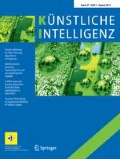Abstract
Global climate change is one of the most challenging problems humanity has ever faced. Fortunately, a new way of solving large, complex problems has become possible in just the last decade or so. Examples like Wikipedia and Linux illustrate how the work of thousands of people can be combined in ways that would have been impossible only a few years ago. Inspired by systems like these, we developed the Climate CoLab—a global, on-line platform in which thousands of people around the world work together to create, analyze, and ultimately select detailed plans for what we humans can do about global climate change.
The Climate CoLab has been operating since November 2009, and has an active community of thousands of users. In this article, we outline some of the challenges faced in developing the system, describe our current solutions to these problems, and report on our experiences.





Similar content being viewed by others
References
Introne J, Laubacher R, Olson G, Malone T (2011) The climate CoLab: large scale model-based collaborative planning. In: 2011 international conference on collaboration technologies and systems (CTS), pp 40–47
Churchman CW (1967) Guest editorial: wicked problems. Manag Sci 14(4):B141–B142
Rittel HWJ, Webber MM (1973) Dilemmas in a general theory of planning. Policy Sci 4(2):155–169
Conklin J (2005) Dialogue mapping: building shared understanding of wicked problems. Wiley, New York
Levin K, Cashore B, Bernstein S, Auld G, Student D (2007) Playing it forward: path dependency, progressive incrementalism, and the ‘super wicked’ problem of global climate change. In: International studies association 48th annual convention, February, vol 28
Nunamaker JF, Dennis AR, Valacich JS, Vogel D, George JF (1991) Electronic meeting systems. Commun ACM 34(7):40–61
DeSanctis G, Gallupe RB (1987) A foundation for the study of group decision support systems. Manag Sci 33(5):589–609
Malone TW, Laubacher R, Dellarocas C (2010) The collective intelligence genome. MIT Sloan Manag Rev 51(3):21–31
Climate CoLab credits, 03-Aug-2010. Online available: http://www.climatecolab.org/web/guest/resources/-/wiki/Main/Credits. Accessed: 04-Aug-2010 N1
Kulkarni AP, Can M, Hartmann B (2011) Turkomatic: automatic recursive task and workflow design for mechanical turk. In: Proceedings of the 2011 annual conference extended abstracts on human factors in computing systems. New York, NY, USA, pp 2053–2058
Kittur A, Smus B, Khamkar S, Kraut RE (2011) CrowdForge: crowdsourcing complex work. In: Proceedings of the 24th annual ACM symposium on user interface software and technology. New York, NY, USA, pp 43–52
Zhang H, Law E, Miller R, Gajos K, Parkes D, Horvitz E (2012) Human computation tasks with global constraints. In: Proceedings of the 2012 ACM annual conference on human factors in computing systems. New York, NY, USA, pp 217–226
Metz B, Davidson OR, Bosch PR, Dave R, Meyer LA Eds (2007) Contribution of working group III to the fourth assessment report of the intergovernmental panel on climate change, 2007. Cambridge University Press, Cambridge
Parry ML, Canziani OF, Palutikof JP, van der Linden PJ, Eds CE Hanson (2007) Contribution of working group II to the fourth assessment report of the intergovernmental panel on climate change, 2007. Cambridge University Press, Cambridge, UK
Laubacher R (2012) What, where, who taxonomy—full view. The Climate CoLab, 2012. Online available: http://climatecolab.org/web/guest/resources/-/wiki/Main/What%2C+Where%2C+Who+taxonomy–Full+view. Accessed: 18-Sep-2012
Matthies M, Giupponi C, Ostendorf B (2007) Environmental decision support systems: current issues, methods and tools. Environ Model Softw 22(2):123–127
Mayer IS, Van Bueren E, Bots P, van der Voort H, Seijdel R (2005) Collaborative decisionmaking for sustainable urban renewal projects: a simulation-gaming approach. Environ Plan B, Plan Des 32(3):403–423
Introne J, Laubacher R, Malone T (2011) Enabling open development methodologies in climate change assessment modeling. IEEE Softw 28(6):56–61
Climate CoLab model help. 10-Aug-2010. Online available: http://www.climatecolab.org/web/guest/resources/-/wiki/Main/Models+Help. Accessed: 04-Aug-2010N2
Salganik MJ, Dodds PS, Watts DJ (2006) Experimental study of inequality and unpredictability in an artificial cultural market. Science 311(5762):854–856
Toplak J (2010) Preferential voting: definition and classification. In: Annual meeting of the Midwest political science association 67th annual national conference. Chicago, IL
Smith WD (2010) Range voting. Dec-2000
Surowiecki J (2005) The wisdom of crowds. Anchor, New York
Acknowledgements
We would especially like to thank John Sterman and Hal Abelson of MIT for their support and participation in many phases of this project. We would also like to thank the following for financial support of this project: the National Science Foundation, BT plc, Cisco Systems, Argosy Foundation, the MIT Energy Initiative, and the MIT Sloan Sustainability Initiative. In addition, we are grateful to Stuart Scott and the members of the Climate Summit for their participation in the early outreach efforts, Mark Klein for his advice in developing an interface to enable on-line debates, Janusz Parfienuik and TopCoder, Inc. for their development work, and our experts, moderators, advisors and other community members for volunteering their time to this project.
Author information
Authors and Affiliations
Corresponding author
Additional information
Portions of the introductory text of this paper appeared previously in [1].
Rights and permissions
About this article
Cite this article
Introne, J., Laubacher, R., Olson, G. et al. Solving Wicked Social Problems with Socio-computational Systems. Künstl Intell 27, 45–52 (2013). https://doi.org/10.1007/s13218-012-0231-2
Published:
Issue Date:
DOI: https://doi.org/10.1007/s13218-012-0231-2




